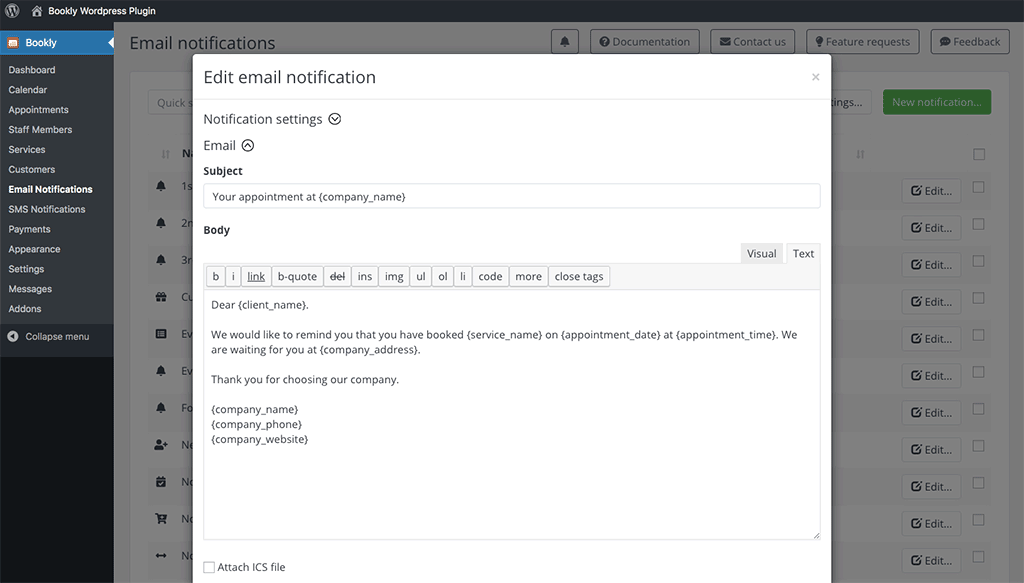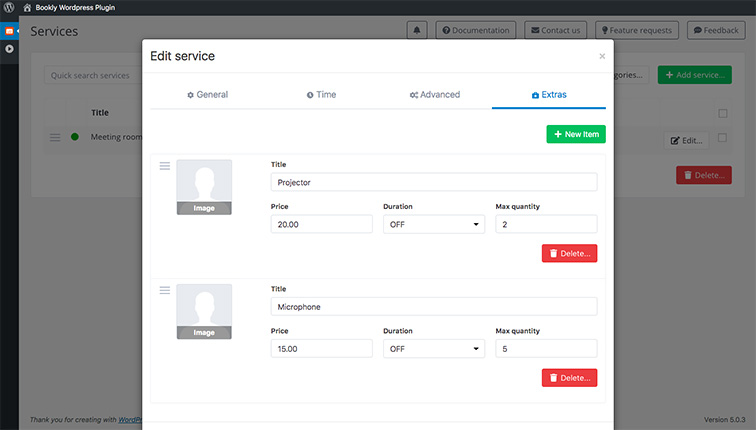
How libraries can benefit from the online booking system
Libraries can benefit greatly from adding online booking forms to their website. These forms enable the public to book the diverse range of services and material which will preserve the central role of libraries in the future.
Libraries are widely loved by the public. In a Pew Research study, it was found that 76% of Americans thought that libraries served the needs of their community well. Unfortunately, this love of libraries isn’t translating into visitors. The same poll showed that in the last twelve months only 44% of Americans had visited a library. Three years earlier that same figure had been 53%.
Libraries know that they need to innovate if they are going to continue to serve the needs of their community in the 21st century. Likewise, they understand the role that technology will play in that transformation.
On one hand technology is at the root of falling library visitor numbers. Free digital content means that libraries are no longer playing the same role they once did. When people require research material, they are more likely to navigate to Wikipedia or perform a Google search than visit their local library. The range of books that are available and their cost has changed dramatically thanks to Amazon.
These trends won’t change but the role that libraries play in the community can. Libraries have always been places that offer more than just the ability to borrow books. But, in more recent years, they have been quick to expand those offerings. By doing so they can ensure that they continue to be a valued intuition in society.

For example, many libraries now offer rooms to be booked for meeting, presentations and other events. Libraries have also expanded beyond just offering books and other media. Libraries frequently rent a range of other equipment that is useful for the local community. Events and classes have also become another common offering for libraries. These allow members of the public to learn valuable and interesting new skills.
Offering these new services brings with its new challenges. Typically, these new services require the booking of additional equipment or spaces. Libraries do not always have the systems in place to facilitate clients being able to book spaces and equipment. With budgets already under pressure, investing in expensive library PC booking system isn’t tenable. This means that librarians often have to deal with ad hoc solutions which fail to deliver on the needs of the public.
Bookly is an online booking solution which can bridge the gap. Bookly is an inexpensive, but highly flexible, library facilities booking system which can be added to any WordPress website. Setting up Bookly doesn’t require a developer and so can be implemented by librarians themselves. The whole process of setting up Bookly only takes a few minutes. In short it is perfect for acting as a library facilities booking system.
Here we’ll look at the core benefits of adopting Bookly for both public and university libraries booking systems.
Customize form to match the library’s website
Many “off-the-shelf” online bookings forms clash badly with the online library website that they are embedded into. What’s more, the lack the ability to customize the form to meet the exact information required for the service being offered. Bookly in contrast is highly customized meaning that it can be modified to fit the needs of any library website.
Firstly, the colours and fonts can be modified to match those of the website that the form is being added to. Secondly, specific steps in the form can be either presented or hidden. Lastly, new fields can be added to the forms to meet the requirements of the service or equipment that is being booked.
Mobile optimized forms
In North America over 50% of internet traffic comes from mobile devices. In Asia that number is even higher with approximately 62% of all web views being performed on mobile. The majority of the public will access an online library website using their mobile phone. That’s why its critical that both the website, and the booking forms, are optimized for the smaller screen. Bookly automatically adjusts when it detects that the online library website is being viewed using a mobile device. In turn it presents forms which are designed specifically for use on mobile devices.
This means that the public can use a library booking form at any time of the day and from wherever they may be. Both the desktop and mobile versions of the Bookly forms have been tested by thousands of users. They are designed with a sleek and intuitive user interface to ensure that the library booking form is completed.
Unlimited number of forms on the website
As noted in the introduction, libraries are now offering a much wider range of services, spaces and equipment to the general public. Each of these different offerings requires specific information when being booked. With Bookly you can create as many forms as you need for the library website. Each of these different forms can have their own unique fields allowing you to obtain precisely the information that you require. At the same time libraries bookings that are made can be added to the same Bookly calendar. This allows you to easily manage all of the appointments made, no matter which form is used.
Take payments for bookings
Many of the services or spaces that libraries offer require the payment in order to cover costs. Bookly allows users to make an online payment at the time of their booking. When the libraries booking forms are setup the administrator can choose to take either a deposit or payment in full. The deposit feature is useful for ensuring that resources are not booked but later cancelled.
Bookly integrates with more than a dozen different payment gateways, making it easy to integrate into the libraries existing financial systems. Payments, both completed and pending, can be sorted and filtered. If the service or space doesn’t require payment, this step can be hidden from the form.
Let library members manage their own bookings
One of the concerns with introducing new service offerings is that it will take up more time from librarians already busy schedules. Bookly empowers library members to manage their own libraries booking forms. When a booking is made that user can be provided with their own unique account details. They can then login and view the details of their booking. They can also modify the booking, including cancelling the booking, if permission to do so has been provided. This saves library staff from the administrative task of locating booking information and processing change requests.
Send SMS and email notifications
SMS and email notifications ensure that the resources that are being booked are properly utilized. Notifications can be set to automatically send a set time before the booking. These notifications will include the full information about the booking including date, time and location. Using notifications prevents the number of “no-shows” and increases the value that library members get out of the resources that they book.
Notifications can be entirely customized to match the requirements of the library. The senders name and email address can be set to a library staff member. Emails can be sent as either plain text or HTML. And there is a WYSIWYG editor that makes it easy to modify the templates that are provided. By customizing the branding, it will be immediately obvious to the person making the booking that the notification is in fact from the library.
Easily search and filter bookings
Dealing with a large number of bookings manually can be extremely difficult. Library staff may need to identify specific information about a particular booking. Bookly makes this type of searching and filtering very easy. Using the Bookly admin panel filters can be applied in order to quickly locate either a past or future booking. When the right booking is found it can be modified or a note added. All of the bookings can be printed out to create a physical schedule for staff members. Bookings can also be exported as a CSV to be added or modified by another database software.
Library members and staff can easily cancel appointments
Appointments can have a minimum cancellation period set. Once this period ends it won’t be possible to cancel the appointment. This is a good way of avoiding last minute cancellations and ensuring the libraries resources are fully used. If an appointment does need to be cancelled within the allowed time frame, then there are plenty of option. Library users can cancel their appointment through the website. Staff members will be able to amend and cancel an appointment through the Bookly dashboard. A cancellation link can even be included in the notification emails. This lets the user cancel their appointment directly from their inbox.
Choose to approve bookings either manually or automatically
You may decide that you want to approve all bookings manually. This can be a good idea for event spaces, where you want to first vet the parties who are making the booking. If you choose this option, then Bookly will place the booking into “pending status”. Until a library staff member approves the booking it will stay as pending. In other cases, you may prefer that bookings are approved straight away. This is a good option if you want to minimize the administrative burden. With this option selected, new bookings will be automatically approved and added to the Bookly calendar. You can choose to filter and sort appointments by their status, whether pending or approved.
Add additional items to a booking
When setting up a booking you can choose to offer additional “add on” items. This allows the library to offer even more value to its users. For example, if the library is renting out meeting room space, it may make sense to also offer a projector, mics or support staff. Users booking the room will be presented with these additional options when they are completing their appointment form. An additional option could even be extra time. Again, this is a good option to include when renting out equipment or a space.
Allow for recurring bookings
Bookly allows you to setup up a recurring bookings option. This means that users can choose to have a particular booking repeat for the weeks or months ahead. For example, this could be used to book a class over a six-week period. Or it could let a user book out a particular meeting room every Monday. This is a convenient option for the user and makes administering recurring booking much easier.
Create waiting lists
There may be particular equipment, classes or rooms which are very popular. In this case you can create waiting lists. When something is booked out, the user can opt to be added to a waiting list. When an appointment becomes available that user is automatically allocated to the newly available slot.
Let users provide reviews
Libraries will often bring in third parties to deliver classes or services to their users. It’s useful to gauge the opinions of those users. If this option is selected, a follow-up notification will be sent to the user following the booking. Inside that notification is a URL that when clicked lets the user leave a review. Bookly then uses this feedback to create an aggregate score. This score can be used to privately evaluate the person who delivered the service. Or it can be displayed public ally on the website to help guide the library members decision.
Inbuilt analytics
Libraries have become increasingly sophisticated in tracking their performance. Bookly helps support these initiatives by offering inbuilt analytics. Bookly’s analytic suite is available through the admin dashboard. Using the analytics, it is possible to see data including the number of appointments which have been booked, how many appointments have been delivered and which team members have delivered them. You can also look at the cost of delivering bookings to get a better sense of the financial implications of offering additional services or equipment.
Conclusion
The diverse range of services, equipment and spaces that a 21st century library offers requires an equally flexible library booking form solution. Bookly is an online bookings software that meets the needs of dynamic libraries delivering a great selection of offerings to their local community.








